Discoveries in little-known fungi: Adventures in looking at lichens
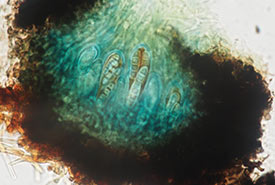
Opegrapha parmeliiperda, cross section of one fruiting body showing four-celled spores developing inside spore sacs; blue colour result of treatment with potassium hydroxide followed by Lugol’s iodine solution. (Photo courtesy of Kendra Driscoll)
I used to think that scientists understood the basics about most living things on Earth, that new species were all discovered long ago by people like Linnaeus and Darwin. Maybe you could find new species in the most remote corners of the planet,...
What we know about lake-safe sunscreen
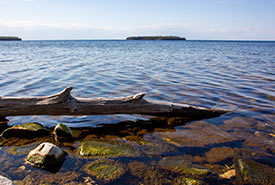
Shoreline of a lake (Photo by Salome Guruli via Unsplash)
I always felt very lucky that I didn’t inherit my mother’s propensity to sunburn. I wore sunscreen constantly as a child because I was afraid I’d turn crispy from mere moments in the sun. To this day, I always wear sunscreen on...
Unlikely animal pairings: Part two
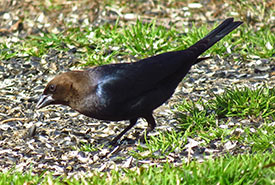
Brown-headed cowbird (Photo by David Dodd CC BY-NC)
This is part two of a two-part series on unlikely animal pairings. Check out part one, the hunting partnership between an American badger and a coyote, here. Another unlikely animal partnership features a bird that is known to take advantage of...
Unlikely animal pairings: Part one
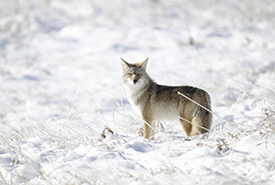
Coyote (Photo by Paul Turbitt)
Have you ever seen the internet stories entitled “unlikely animal friends”? Usually, they are stories about a dog and a cat that sleep together, but sometimes they are about more exotic couplings, like an ostrich and a giraffe, or a...
Paw in claw: Friendships in the wild
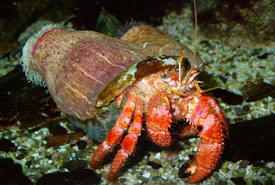
A sea anemone hitching a ride on a hermit crab. (Photo from Wikimedia Commons)
Friendships are one of the most organic things that can happen between humans. An often magical thing, these bonds are strong and can last a lifetime. While these human connections are no doubt valuable, for animals, “friendships,”...
An introduction to the science of bird migration in Canada
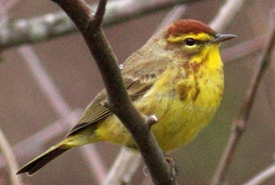
Palm warbler (Photo by Marshall Faintich)
Birds move. Actually, they do better than that: most birds fly. And the distances these tiny creatures can cover is jaw-dropping. On top of that, can you imagine the views from a bird's vantage point as it flies from South America to Canada?...
Something’s fishy: While you were sleeping
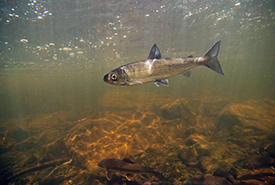
Atlantic whitefish (Photo by Bob Semple)
There are few things I love more than a good power nap. As an avid runner, I put my body through a lot, and rest is an important part of the training process. But sleep is essential for all humans, regardless of how many kilometres we are...
The Great Backyard Bird Count: Counting birds for community science
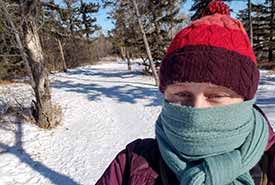
Dressed for birding in the polar vortex (Photo by Sarah Ludlow/NCC staff)
The Great Backyard Bird Count (GBBC) is a global community science project that aims to gather a snapshot of bird populations and distributions in mid-February, before their annual spring migrations begin. The GBBC runs for four days each year,...
Bluebirds of frustration and happiness
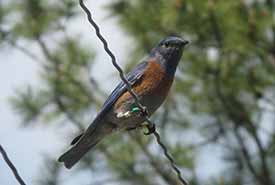
A male western bluebird perches on a fence in southern British Columbia. Note the coloured leg bands, which allow observers to identify the bird. (Photo by Catherine Dale)
I have a complicated relationship with western bluebirds. I know that sounds strange, because who doesn’t like bluebirds? Their vivid plumage and soft calls are acclaimed as harbingers of spring and symbols of happiness. As Henry David...
Love is in the air, and in the waters too
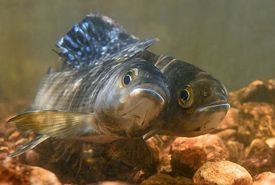
Mating arctic grayling (Photo by Charles Summers Jr.)
Did you know the amorous aura of Canada’s most romantic cities can be detected in nearby bodies of water? From coast to coast, and the rivers and lakes in between, there is no shortage of passion…among fishes. Coastal...

